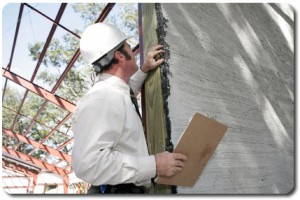 A foundation inspection is a thorough analysis of a building’s base, carried out by professional structural engineers. It is not a routine process many might overlook, and it carries profound significance in ensuring the safety, value, and regulatory compliance of a structure.
A foundation inspection is a thorough analysis of a building’s base, carried out by professional structural engineers. It is not a routine process many might overlook, and it carries profound significance in ensuring the safety, value, and regulatory compliance of a structure.
The process of a structural engineer foundation inspection serves to reveal underlying structural issues that may escape the untrained eye. It forms the cornerstone of property maintenance and holds vital relevance to homeowners, contractors, and real estate agents alike.
If you are planning to schedule a foundation inspection, this guide will cover everything you need to know. Let’s start with why this process is so vital:
The Importance of a Foundation Inspection
Preserving the structural integrity of a building is paramount, and foundation inspections are instrumental in this process. Unresolved issues in the foundation can lead to significant structural damages over time, resulting in costly repairs and posing safety risks.
Neglecting these inspections may result in dire consequences. Deteriorating foundations can cause buildings to lean or even collapse. Unaddressed foundation issues may also lead to secondary problems such as water leakage, electrical hazards, and damage to the building’s aesthetics.
When is a Foundation Inspection Required?
The purchase of a new property invariably necessitates an inspection of its foundation to assess the structural integrity and ensure a sound investment. Additionally, the emergence of visible changes, such as wall cracks, misaligned doors, or uneven floors, should trigger an immediate inspection.
Regular inspections should be part of a property’s preventive maintenance routine. Waiting for noticeable signs of damage is not always ideal, as some foundation problems may not manifest until they’ve progressed significantly.
In the aftermath of a natural disaster, an inspection is also an indispensable benefit for property owners seeking to assess the damage. Earthquakes, floods, or landslides can critically impact a building’s foundation, and swift assessment aids in the mitigation of further issues.
Who Conducts a Foundation Inspection?
Foundation inspections are not mere casual evaluations; they require an experienced professional, typically a structural engineer. These experts possess the necessary training, skills, and tools to carry out a meticulous examination.
Qualified inspectors understand the intricacies of building structures and the nuances of different foundation types. They can leverage their expertise to recognize subtle signs of damage that might escape an untrained observer.
Employing a licensed, experienced professional for the task is essential. A skilled inspector’s findings are reliable and recognized by other parties involved, such as insurance companies, lenders, and potential buyers. Without these insights, you could be placing your property or yourself at financial risk and miss potential opportunities for more favorable purchase prices, financing, or insurance coverage.
The Foundation Inspection Process: Step-by-Step Guide
The foundation inspection process consists of three key phases: Preliminary Assessment, In-depth Investigation, and Analysis and Report.
- Preliminary Assessment: This stage involves a comprehensive visual examination of the building. The inspector scrutinizes both the exterior and interior of the structure, looking for obvious signs of foundation distress such as cracks, settling, or bulging walls.
- In-depth Investigation: This stage is far more intensive. The inspector conducts a series of tests to measure moisture levels, assess the soil conditions, and examine the plumbing system for leaks that could affect the foundation. This in-depth investigation helps identify issues that may not be apparent during the initial visual inspection.
- Analysis and Report: After the investigation, the inspector analyzes the collected data. They create a detailed report outlining their findings, potential solutions, and recommendations for the property owner. This report is a valuable tool for making informed decisions regarding foundation repair or maintenance.
Understanding a Foundation Inspection Report
An inspection report is a detailed recap that presents the findings of the inspection. It includes information on the condition of the foundation, any identified issues, and recommendations for remediation.
Interpreting the report requires an understanding of specific terms used by the structural engineering profession. Terms such as “settlement,” “subsidence,” and “efflorescence” depict different conditions impacting the foundation’s health.
- Settlement: This term refers to the natural and gradual sinking or lowering of a building’s foundation due to compression of the underlying soil. Minor settlement is common and usually harmless, but severe or uneven settlement can cause significant structural damage.
- Subsidence: Subsidence is the sudden or unexpected sinking of a building’s foundation. This is often caused by changes in the moisture content of the soil, such as from a leak or drought, and can lead to significant damage if not addressed.
- Efflorescence: Efflorescence is a crystalline deposit of salts typically visible on the surface of concrete, brick, stone, or other building materials. It typically occurs when water leaves behind salt deposits as it migrates through these materials. While efflorescence itself isn’t structurally damaging, it can be a sign of excessive moisture, which can lead to other foundation problems.
Inspection reports also have considerable implications for the value and safety of the property. Problems revealed in these reports can affect property valuation and indicate potential safety hazards.
Corrective Measures and Prevention Strategies
Foundation inspections not only identify existing problems but also provide recommendations for corrective measures. Solutions for common foundation problems include sealing cracks, managing soil moisture levels, and in more severe cases, underpinning the foundation.
Homeowners can also implement preventive measures to protect their foundations. Proper drainage systems, regular plumbing checks, and maintaining soil conditions can substantially reduce the risk of foundation issues.
Regular inspections are indispensable for the early detection of potential issues. They allow for prompt, cost-effective solutions before minor problems escalate into significant structural damage.
Get Foundation Inspections for Your North Carolina Property
The foundation of a building is a critical element that supports and maintains the structural integrity of the entire construction. Regular foundation inspections by skilled structural engineers are essential to ensure the safety, value, and longevity of a property. These inspections, far from being an unnecessary expenditure, are a prudent investment in preserving a building’s health and preventing potentially devastating damage.
At Structural Innovations, our team of highly experienced, Charlotte-based structural engineers provide foundation inspections for properties throughout North Carolina. If you are looking for a thorough inspection of your property, contact us today to learn more about how we can assist you.

